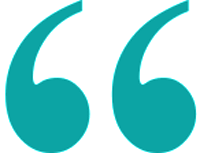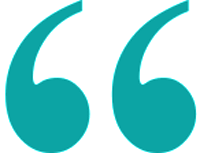Join us in Recognizing Sexual Assault Month this April and Denim Day (the last Wednesday of the month)

Join us in Recognizing Sexual Assault Month this April and Denim Day (the last Wednesday of the month)
Ending sexual violence is inextricably linked to disability justice, sex workers rights, gender self-determination, queer and trans liberation and the prison industrial complex.

– Reina Gossett from the book “Queering Sexual Violence: Radical Voices from Within the Anti Violence Movement”

April is Sexual Assault Awareness Month (SAAM). SAAM is about both raising awareness of and advocating for prevention of sexual assault, harassment, and abuse. Sexual violence is sexual activity that occurs without consent being freely given or obtained. Sexual violence is a serious public health issue, impacting every community and affecting people of all genders, sexual orientations, and ages. Anyone can experience or perpetrate sexual violence whether in person or online with the perpetrator of sexual violence usually being someone the survivor knows, such as a friend, intimate partner, coworker, neighbor, or family member. Sexual violence has a profound lifelong impact on the health and well-being of a survivor.
Over the decades, Sexual Assault Awareness Month has appeared in mainstream media bearing messages such as: #MeToo Movement, End Rape Culture, Believe Survivors, Break the Silence, End the Violence, to most recently Building Safe Online Spaces Together-- all of which remain current today.
This month, we focus on encouraging others to understand that the impact that Sexual Assault has on an individual is unique to that person intersectionality.
Sexual assault occurs at unacceptably high rates. Over half of women and almost 1 in 3 men have experienced sexual violence during their lifetimes. However, intersectional groups experience sexual violence at even higher rates. For example,1 in 2 trans people will experience sexual assault in their lifetime, with gender non-conforming youth and Black, brown and Indigenous trans folks of all ages are particularly targeted for sexual harm. (CDC Fast Facts: Preventing Sexual Violence) While women of racial and ethnic minority groups experience a higher burden of sexual violence with more than 2 in 5 non-Hispanic American Indian or Alaska Native and non-Hispanic multiracial women were raped in their lifetime. (CDC Fast Facts: Preventing Sexual Violence) Additionally, people with disabilities are at least 3 times more likely to be sexually assaulted than people without disabilities, and people with intellectual and developmental disabilities are 7 times more likely to be sexually assaulted (Vera Institute, 2017).
Although these numbers are high, they underestimate the prevalence of sexual violence in our society given that many cases go unreported. Survivors may feel unable to report to the police or share their experience with friends or family because of shame, fear or embarrassment. Additionally changes in laws and policies have created barriers to accessing information on preventing sexual violence by promoting healthy relationships, educating people about consent, and providing medically accurate and LGBT-inclusive information to youth in school and public health environments. Furthermore, opposition to gender affirming care and options to end a pregnancy limit the ability of a survivor to maintain control over their bodies.
We invite you to join us in raising awareness and visibility about sexual violence and disability, and the intersections with bodily autonomy, racial equity, transgender rights, and economic justice.
Join us in Recognizing Denim Day (the last Wednesday during the month of April)
Together, we can change this narrative!
The last Wednesday of the month of April is always recognized as Denim Day, which is a campaign to practice solidarity and support survivors of sexual assault.
Join in making a statement against the misconception surrounding sexual violence by wearing denim with a purpose. By educating ourselves and our communities about these connections, promoting prevention, and improving access to support and resources for victim-survivors, we can deepen our collective understanding that no single person’s experience or healing journey is the same.
Learn more regarding the national #SAAM campaign
- National Sexual Violence Resource Center (NSVRC) Sexual Assault Awareness MonthL https://www.nsvrc.org/saam
- For more information on the history of Denim Day or to take the Pledge, visit: http://denimdayinfo.org/about/
- California Coalition Against Sexual Assault (CALCASA). Ending Sexual Violence: An Intersectional Approach. https://tinyurl.com/y8mehfvl
- 16 Ways to End Rape Culture https://www.unwomen.org/en/news/stories/2019/11/compilation-ways-you-can-stand-against-rape-culture

Domestic Violence and Interpersonal Violence
- End Abuse of People with Disabilities
- It Shouldn’t Hurt to Go Home booklet
- Article: “Why Domestic Violence Is a Public Health Crisis” (DomesticShelters.org)
- Article: “Violence is a Public Health Issue: Public Health is Essential to Understanding and Treating Violence in the U.S.” (American Public Health Association, apha.org)
- Housing Rights of Domestic Violence and Sexual Assault Survivors, a State and Local Law Compendium, 2024 (National Housing Law Project, nhlp.org)
- California Partnership to End Domestic Violence: Provides a comprehensive list of resources and hotlines across California
- Haven House Family Shelter: Provides shelter and support services for victims of domestic violence and their children.
- DomesticShelters.org: An extensive database of domestic violence shelters and programs across the U.S. and Canada.
- California Department of Public Health - Domestic Violence/Intimate Partner Violence: Offers information and guidance on prevention and support.
- Empower Yolo: Provides a wide range of services including safe shelter, legal services, and counseling in Yolo County.
- VALOR – Advancing Equity. Ending Sexual Violence: Focuses on ending sexual violence and promoting equity.
- DeafHope supports Deaf survivors of domestic violence and interpersonal violence. You can learn more about their work and services at their website: www.deaf-hope.org





